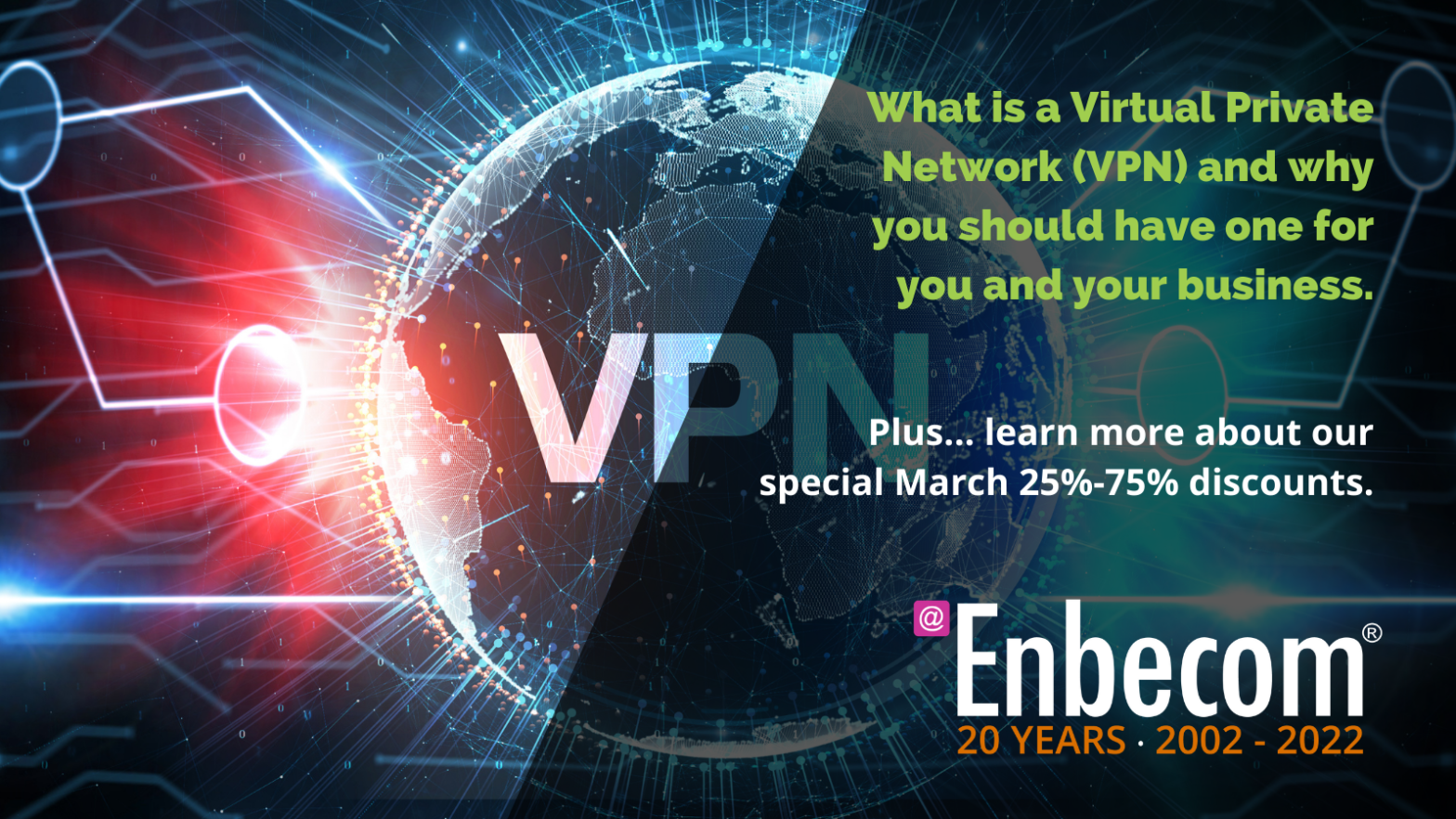What is a Virtual Private Network (VPN)?
A virtual private network (VPN) is a private network that provides you with online privacy and anonymity by creating a private network from a public internet connection. So if you are in a public place such as a hotel lobby, cafe, or any other spot that offers access to free public Wi-Fi, its ideal to have a VPN because it will ensure you have privacy when you’re logging onto the internet from a public place.
So why should it matter having a VPN when logging onto free Wi-Fi from a public place?
VPN services establish secure and encrypted connections to provide greater privacy than even a secured Wi-Fi hotspot. To explain in layman’s terms a VPN provides you with a security blanket that it’s more difficult to see through and so you are much more hidden from prying eyes, so no one involved in the public wi-fi can nose at what you are doing. A VPN will mask your internet protocol (IP) address, so your online actions are less traceable – important when legitimate protection of your identity is important.
So, in effect your online activity is hidden from prying eyes, including the links you click or the files you download, so that hackers, other businesses, competitors, cybercriminals, government agencies, or other nosey parkers can’t see what you are doing online.
Why should I have a VPN for my business?
In a nutshell, it’s of the upmost priority to ensure your business and also your personal details are secure while using the internet. The main way when you are out in the public sphere to ensure all your online details are kept private while using a public Wi-Fi connection, is to ensure you have a VPN in place.
Let’s take examples: you may have logged onto a free Wi-Fi spot at the airport waiting for your flight, in a hotel lobby to check your bank details, or replying to some urgent work email while having a drink in a local café. Or simply just surfing the web and not thought about how secure your Wi-Fi connection is.
If you’ve done this without first logging onto a VPN, you could have exposed your private information and browsing habits to hackers and cybercriminals. Surfing the internet on an unsecured Wi-Fi network means you could be exposing your private information and browsing habits to unwanted prying eyes. That’s why a VPN should be a priority purchase for anyone concerned about their online security and privacy.
Unless you are logged into a private Wi-Fi network that requires a password, any data transmitted during your online sessions could be vulnerable to hackers, cybercriminals and unwanted eavesdropping by strangers using the same network.
That is why it’s important to protect not only your online business but your personal information too, and this can be done by purchasing a VPN. VPNs encrypt your data while online, scrambling it so that unwanted nosey parkers and hackers alike can’t read it. The encryption that a VPN provides keep your online activities private, everything from sending work emails and paying bills with your card online, to shopping and zoom call meetings.
Extra benefits for international businesses
Because many VPNs let you choose which country you are in, from a list of many, you can browse as if you are in different countries. This is great if you run a website which serves different content / languages / currencies to people in different countries. You can easily check what they see, as if you were there. Gone are the days of finding people in other countries to test the site for you (although you can always do that too as a belt-and-braces approach).
Recap of the benefits of having a VPN:
• Shield your personal and business data when using public Wi-Fi
• Private access to the internet from other countries
• Hide your IP address
• Protect your online identity
• Secure your bank transactions
• See your website as others do
How can you get a VPN?
UPDATE DECEMBER 2022: We’re currently looking to refresh our VPN offering. We’ll write a new blog post when we’ve done this.

